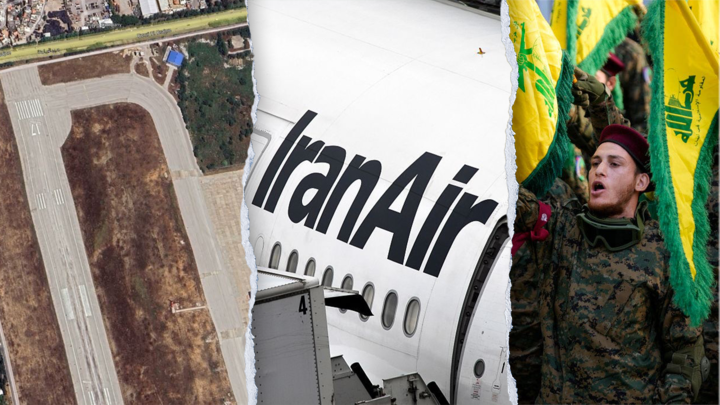The People’s Mojahedin Organization of Iran (PMOI/MEK) has released a report alleging that Iran Air, the domestic airline of Iran, is providing support to Hezbollah, a U.S.-designated terror organization. The report claims that flights between Iran and Beirut Airport in Lebanon are often used to transfer Hezbollah personnel to Iran for training courses and to smuggle food, light, and medium weapons into Lebanon. It alleges that Iran Air has delivered advanced light weapons from Iran to Lebanon, specifically through runway 17, which is said to exclusively belong to Hezbollah. In January 2021, a Hezbollah member claimed that shipments arriving at runway 17 included anti-aircraft missiles.
Jason Brodsky, policy director for United Against Nuclear Iran, explained that Iran Air has a history of enabling the procurement of Western products, particularly dual-use goods, for use by Iran’s Islamic Revolutionary Guard Corps (IRGC) and Defense Ministry. The MEK also stated that intelligence obtained from inside the IRGC and Ministry of Intelligence and Security shows that Iran Air has been used to move MOIS agents and equipment for terrorist activities outside of Iran. Asadullah Assadi, a terrorist diplomat and former MOIS station chief for Europe, was sentenced to 20 years in a Belgian prison for plotting to bomb a National Council of Resistance of Iran (NCRI) gathering in 2018.
Historically, Iran Air has ties to terror, such as transporting terrorists involved in the assassination of a human rights defender in 1990. The Treasury and State Departments have sanctioned Iran Air for providing equipment and aircraft parts to Russia, as well as a history of transporting goods for Iran’s IRGC and Ministry of Defense and Armed Forces Logistics. The U.S. sanctions led France, the United Kingdom, and Germany to cancel bilateral air service agreements with Iran and work towards imposing sanctions on Iran Air. Ali Safavi, a member of the Foreign Affairs Committee of the NCRI, believes that Iran’s regime has strategically used civil entities, including its national airline, to support terrorism.
Senior IRGC-Qods Force Commander Brigadier General Rostam Ghasemi appointed IRGC Brigadier General Shamseddin Farzadipour as the head of Iran Air in 2022. Farzadipour’s previous role was the IRCH Air and Space Force aviation operations commander, indicating the airline’s alignment with the IRGC’s oppressive objectives. Safavi has called on the international community to ban Iran Air from flying to major hubs in Europe and to designate the IRGC as a terrorist organization. He has also urged the United Nations Security Council to reinstate sanctions against Iran.
When asked about the allegations regarding Iran Air’s support for Hezbollah, the Permanent Mission of the Islamic Republic of Iran to the United Nations stated that Iran is providing humanitarian assistance to Lebanon and has expressed readiness to extend medical aid. The spokesman emphasized that Lebanon does not need military support and that the priority should be on establishing a ceasefire and facilitating relief efforts. The Iranian government’s response contradicts the claims made by the MEK and other sources regarding Iran Air’s involvement in supporting Hezbollah and conducting terrorist activities.















